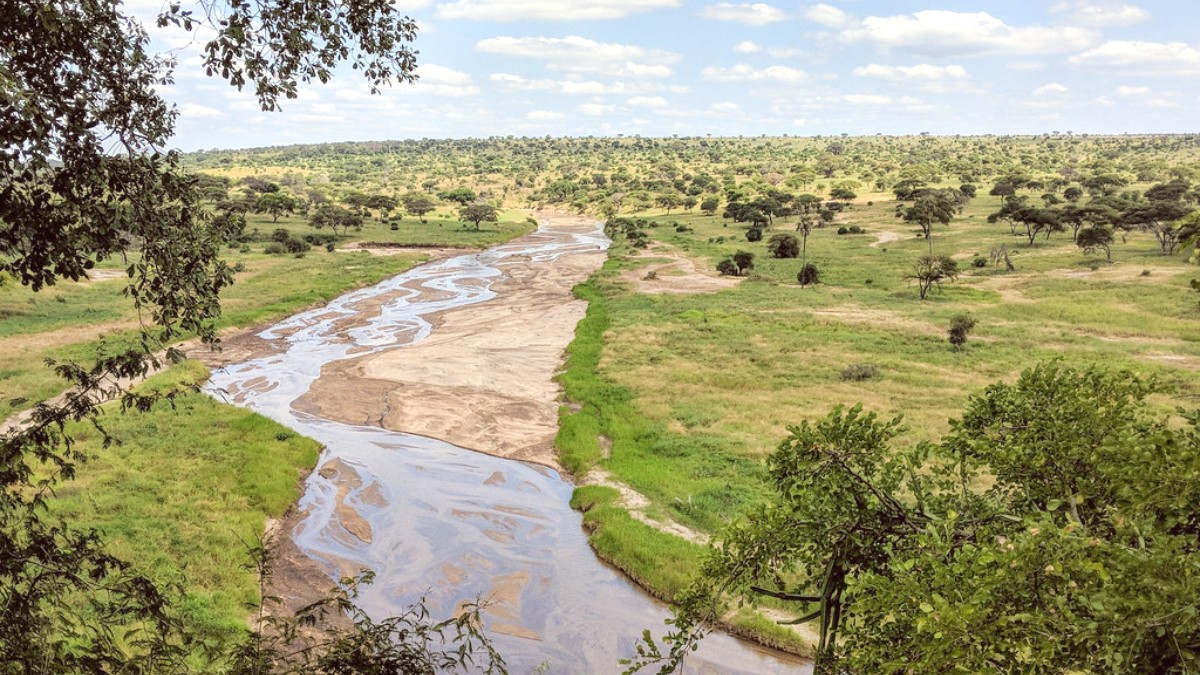
Northern Tanzania, Tanzania
Arusha’s lodging landscape has a choice for every traveler.
Mainly cater to budget travelers and backpackers. They have dormitory-style rooms, private rooms with shared bathrooms, and communal areas. Hostels are a good place to meet other travelers and find group safari opportunities.
Often family-run, with simple, clean rooms with private or shared bathrooms. Guesthouses present a more local and intimate experience than larger hotels and are generally budget-friendly.
Comfortable rooms with private bathrooms, air conditioning, and amenities like restaurants, bars, and sometimes swimming pools. These have good value for travelers seeking comfort without extreme luxury.
Found both within the city and on its outskirts, with high-end services, spacious rooms, fine dining, extensive facilities, and often beautiful gardens or views. They cater to travelers seeking comfort and indulgence.
Often on the outskirts of Arusha or strategically en route to national parks. These lodges have a bush-like experience, sometimes with wildlife viewing directly from the property. They feature amenities like swimming pools, restaurants, bars, and comfortable common areas. Many safari lodges blend with the natural environment.
For a more immersive safari experience. These range from basic mobile camps to highly luxurious permanent or semi-permanent tented camps. Tents are typically spacious, with comfortable beds, private bathrooms, and often a private veranda. They connect you closer to nature without sacrificing comfort.
Focus on sustainability and minimizing environmental impact. They often use local building materials, solar power, and water conservation. Many eco-lodges deeply integrate with local communities, aiding conservation efforts and local economies.
Some coffee plantations or farms have accommodations, giving an unique insight into the region's agricultural life and a tranquil setting.
Platforms like Airbnb and Booking.com list many apartments and houses for rent in and around Arusha. These suit longer stays, families, or groups, with more space, privacy, and self-catering. They present a local living experience.
Local operators and cultural tourism initiatives facilitate homestays or village visits, for authentic cultural immersion. These experiences mean living with a local family, participating in daily activities, and gaining knowledge of Tanzanian life. They directly aid local communities.
Designated campsites are within national parks (basic public or private) and at some private lodges near Arusha. These cater to budget safaris, independent campers, or trekkers on Mount Meru/Kilimanjaro. Facilities range from very basic (pit latrines) to flush toilets and hot showers. Many budget safari operators use public campsites.
Arusha is a sprawling city. The neighborhood you pick sets your experience, from ease to atmosphere. Each area has its own character.
The city center can have petty crime (pickpocketing, bag snatching), especially at night or in crowded areas. Outlying areas, notably with lodges, are generally safer and secluded, but less walkable. Always take a reputable taxi or ride-share if going out at night, regardless of the area.
The city center offers easy walking access to city attractions like the Clock Tower, Maasai Market, and museums, plus the main bus stand for dala-dalas. Outlying lodges need pre-arranged transport for city access or safari departures, but are often placed well for safari routes.
Advance booking of accommodation greatly defines your travel experience.
Booking directly with lodges or hotels can sometimes secure better rates, special packages, or specific room requests.
Negotiation for walk-in rates is limited at established hotels. Some smaller guesthouses or budget accommodations might give minor discounts, especially during the low season, if you pay in cash.
Pre-booking online generally delivers competitive and transparent rates.
Arusha has varied lodging to match different budgets and preferences. This guide helps you choose.
Basic, shared or private rooms, communal areas. Often centrally located, great for meeting other travelers.
Comfortable rooms, private bathrooms, sometimes a pool or restaurant. Good value and a balance of comfort and cost.
Unique design, personalized service, often with a specific theme or local character. Presents a more intimate and stylish experience.
Located on outskirts or en route to parks. Offer game drive access, pools, restaurants, and often all-inclusive packages for safari-goers.
Apartments or houses, with more space and self-catering. Presents a local living experience. Suitable for longer stays, families, or groups. Explore Vrbo for options.
Local operators and cultural tourism initiatives facilitate homestays or village visits, for authentic cultural immersion. They directly aid local communities.
Basic facilities, often within or near national parks. Bring your own Camping gear or use gear from budget safari operators.
Ideal for adventurous travelers and trekkers on Mount Meru or Kilimanjaro, for an immersive outdoor experience.
Campsites in or near parks offer proximity to wildlife, giving a wilder safari feel.
For longer stays and an immersive local experience, consider house-sitting opportunities.
Experience agricultural life and tranquil settings at local coffee plantations or farms that have accommodation.
Consider staying at a safari lodge on the outskirts of Arusha for your first night or last night. This presents a relaxing transition from/to international travel.
A safari lodge stay often offers a taste of the safari experience before you even head into the national parks, preparing you for the adventure ahead.
Many safari lodges on the outskirts are strategically placed for easy access to the main safari routes, simplifying your departure for game drives.